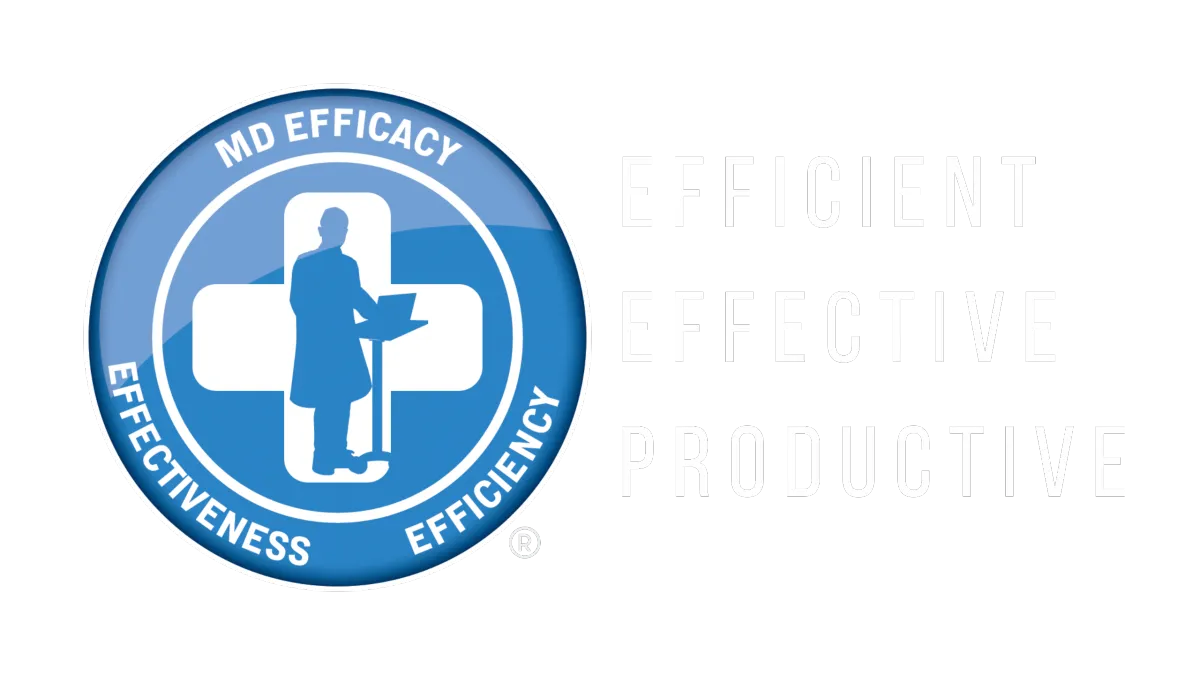Patient Satisfaction – Physician Effectiveness Series
Posted Mar 25, 2025
Is it important to care about patient satisfaction and reviews? Is it really what we need to focus upon? Now this is a very important topic when we talk about physician effectiveness. And here we are in the physician effectiveness series.
And today I would like to touch on this topic which is really crucial.
And the crucial part is, although it is very important, we don't get to learn a whole lot about that during our training. We get to focus on learning the medicine, which is very important. But there are some aspects around practicing medicine that we need to focus upon.
Where is the dilemma? Now we want to practice good medicine.
We want to achieve good outcomes. And we want to reach a middle ground between getting that medicine job then, which is important to have the patients happy, which is also important, and then achieving a reasonable revenue for us as physicians. This is also important for us.
We need to find a balance. Because you have an agenda and there are things you need to tackle and to discuss with the patient. And during that time, you want the patient to be pleased as well. And you truly care about their emotions and you attend to what they need. And this takes time. And the more time you spend in the visit with the patient, the fewer patients you will see which will decrease your revenue.
And I'm not asking that we see tons of patients every day, but it is just simple calculation. If you spend a lot of time with every patient, then you will see less number of patients. And the volume is a huge part of our revenue. So how can you achieve all of them within reason? Your patients are really pleased and happy.
And the duration you spend with the patients is not much. So you can see more patients and achieve good revenue.
And still these patients will recommend their family members, their friends. And they're going to write you good reviews. How can you achieve that?
The first question we want to ask is patient satisfaction important?
In order to answer this question, you need to understand the balance between the cerebral cortex and the limbic system. The reasonable mind set in making decisions and the emotions that play role in the decision making. And it's a very interesting fight because every time there is a fight between the cortex and the emotions in the limbic system, the limbic system would win.
If the physician is such a great physician who everyone is going to talk about their skill and expertise, but they have horrible bedside manners, chances are they're going to get bad reviews. Although they are great clinicians and they get the job done because emotions play a big role in our decision making. On the other hand, some patients decide to go to the same physicians over and over, although they are not reaching a good outcome just because they like these physicians and they like the encounters.
I'm not saying that I'm generalizing that on all of the patients. This is not the case.
If me as a patient, I have a very nice physician, but they are not achieving the outcomes that I would like to reach.
Chances are you're going to go to another pleasant clinician. But if there is a clinician who is very competent but they are not very pleasant, I may decide not to go there. Unless they are the sole experts in that specific field, and then I'm stuck, and they do not have another option, which is rare. It is not the common scenario.
So the point here is understand that emotions play a big role in our decision making.
This is very important to understand. The second is
How patients choose their physicians. Reviews and word of mouth play a big role here. Again, if I am the patient, how can I tell which physician I’m going to choose for a specific disease? First, I'm going to ask my friends or those who I trust. And if I cannot find, I'm going to go to the online reviews and I'll do my best to go to unbiased patient reviews.
So chances are, I may not rely 100% on the reviews written on their website because chances are they're going to be biased.
I'm going to go to Google or Google Maps or other websites where patients can share their reviews without monitoring.
With the understanding that usually those who write reviews are on the extremes, either they had a phenomenal outcome and they would like to write about it, or more commonly, patients who had negative experiences and sharing that, and they may not represent the real situation.
These are usually the populations of patients who share their reviews.
Moving to the next point, as a patient, how would you like your physician to treat you?
First, you want undivided attention.
If I'm sitting with the physician. But then they are looking at their computer all the time, they are not focusing on me and they are not maintaining eye contact. I’m going to feel that they are not listening to me and I'm not that important to them, and I will not be pleased here.
Second is that the physician is approachable and pleasant.
I can feel comfortable talking to them, share my vulnerabilities, and trust their expertise and opinion.
This is going to be much easier if there is that common ground of having nice communication skills to be able to talk to them.
Next is mastering their medicine.
You can tell when you are sitting with a physician if they have the expertise and they treated diseases like the disease, if I'm the patient, that I am talking to them about. Whether from how many patients they treated before, from the advice and sharing the logic in how they are thinking. It is very important for me to trust in their skills.
And of course, this is during one visit. But then from the subsequent visits, you can tell if we are reaching a good outcome or not. And last but not least
is excellent communication skills.
Even if I'm saying good enough communication skills that can let us go by.
As we talked before about the 20:80 rule, 20% of the effort can give you 80% of the outcome and sometimes, 80% is good enough.
So if I have the foundations of communication skills, I can fly by. I don't want to get 100% on communication skills at the expense of others, but we need good enough communication skills.
As we are in a world dominated by reviews. And we as physicians now are competing with restaurants and medical spas who go by the reviews. It's just a very different world we are living in and a change in the mindset.
We need to care about reviews, and it has to be among our priority list. We cannot dismiss them and say, you know what? I'll just practice good medicine and I don't need to care about that. You can do this if you have a huge patient load and you truly don't mind, even if negative reviews, you still are going to have a full panel.
But are you going to say, even if this is the case, I would recommend that you care about your reputation, because whatever you have today may be challenged tomorrow. Today you are dominating your market. There is no one else except you. Tomorrow you've got competitors and these negative reviews is going to come back and bite you. So care about the reviews and work on them.
A very important question that is being asked before we talk about the positive reviews is how to deal with the negative comments and negative reviews?
And my advice for you here is make them a minority.
The solution is dilution.
If you have two reviews and one is negative, that's not good. This is like 50%. But if you have 100 reviews and two of them are negative.
This is 2%. This is now a minority. This minority will be very important because it shows that the 98% of the comments are authentic. They are real because if you are making them up, you will not put negative comments. So negative comments are important, but you need to dilute them by getting a lot of positive authentic reviews.
Now let's talk about some tips to help you in achieving good patient satisfaction.
(Numbered tips follow…)
To sum up here, patient satisfaction and reviews are very important and you need to care about them and have them as part of your routine practice and ensure that good communication skills are being followed all the time. And thank you for watching.
MD Efficacy © 2026, All Rights Reserved.
By visiting this page, you agree to Terms of Use, Privacy Policy, & Earnings Disclaimer.

